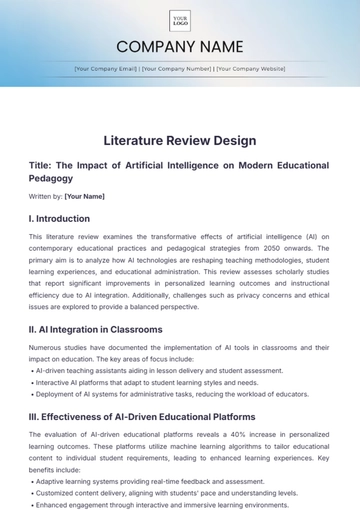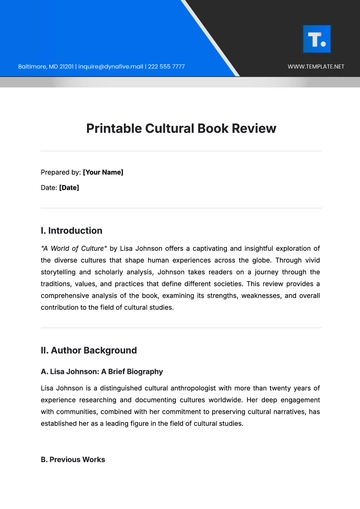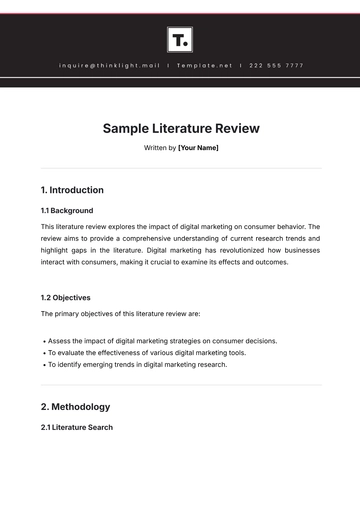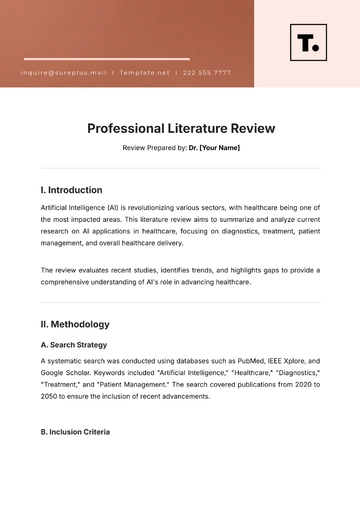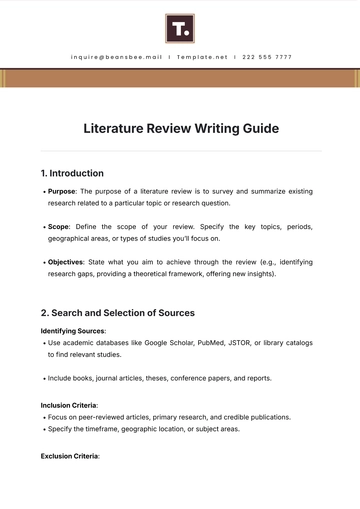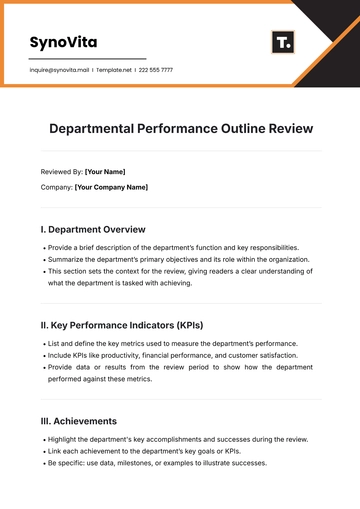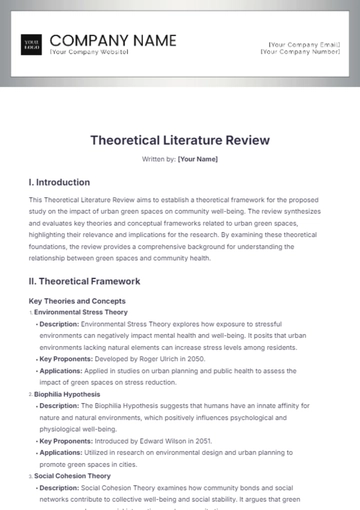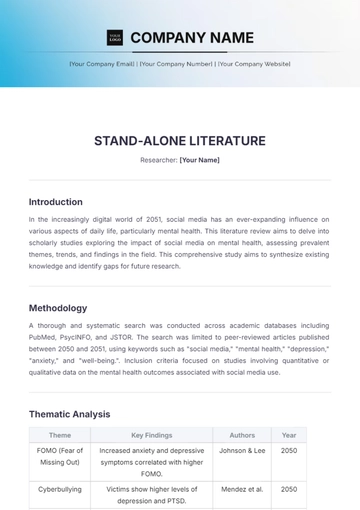Free Marine Biology Systematic Review
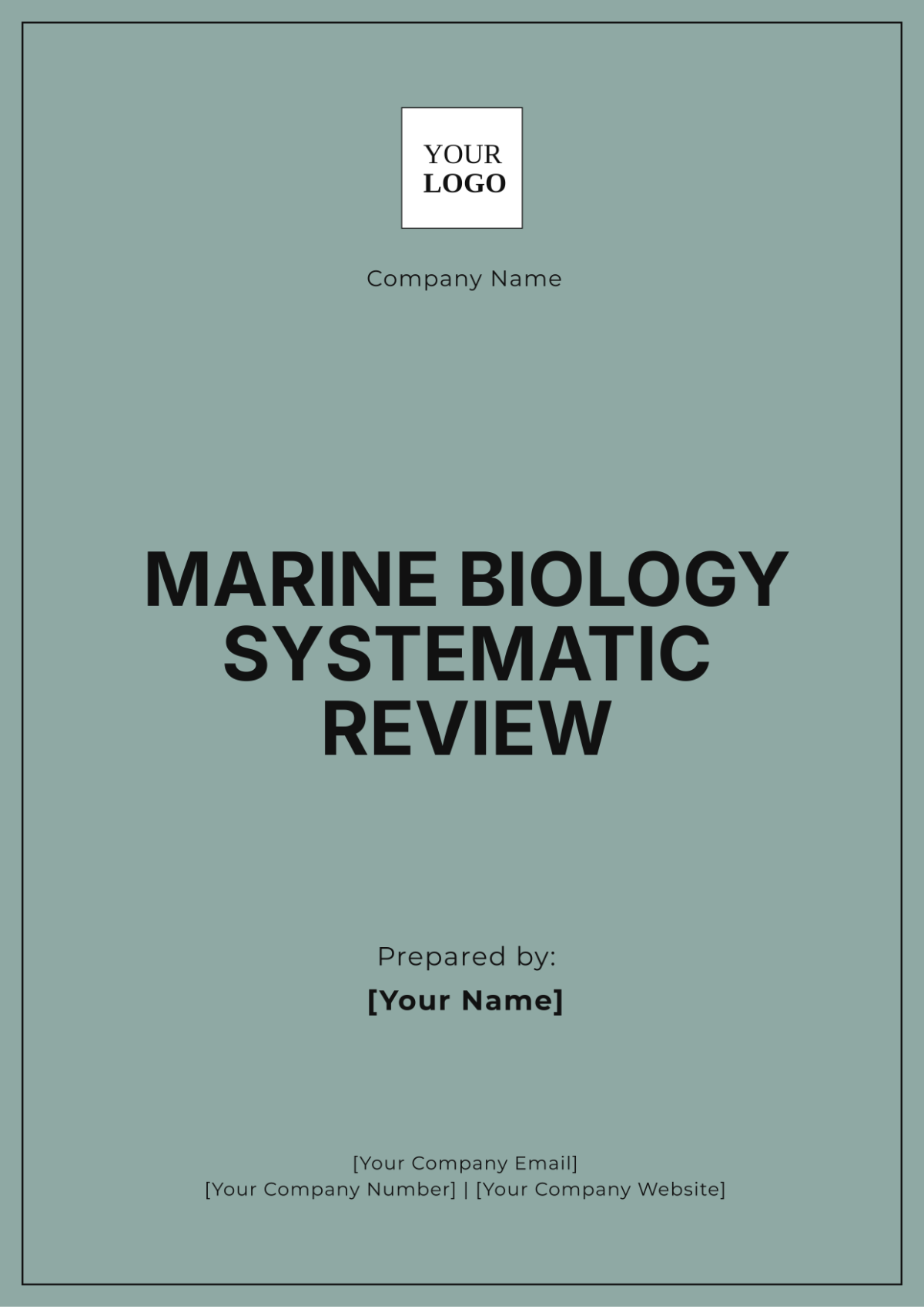
Prepared By: [Your Name]
I. Introduction
Marine biology is a vast field that explores the diverse ecosystems within the world's oceans. This systematic review aims to collate and evaluate recent research in marine biology to provide a holistic understanding of current trends, challenges, and discoveries. The review is structured to encompass various aspects of marine biology, including marine organisms, ecosystems, environmental threats, and conservation efforts.
II. Methodology
The methodology for this systematic review involved a comprehensive search of multiple scientific databases such as PubMed, ScienceDirect, and Google Scholar. Inclusion criteria were limited to peer-reviewed articles published within the last decade, focusing primarily on empirical studies. The key factors in the selection process included methodological rigor, sample size, and relevance to the field.
III. Marine Organisms
A. Microorganisms
Microorganisms play a critical role in marine ecosystems. Recent studies have focused on:
Microbial diversity and its impact on marine health.
The role of marine bacteria in biogeochemical cycles.
Antibiotic resistance patterns in marine pathogens.
B. Invertebrates
Invertebrates contribute significantly to biodiversity and ecosystem functioning. Key research topics include:
Coral reef health and resilience.
The ecological roles of marine sponges and their symbiotic relationships.
Population dynamics of jellyfish and their impact on marine food webs.
C. Fish and Other Vertebrates
Research on marine vertebrates has shed light on various important topics:
Migration patterns and behavioral ecology of fish species.
Conservation efforts for endangered marine mammals such as whales and dolphins.
The impact of overfishing on marine biodiversity.
IV. Marine Ecosystems
A. Coral Reefs
Coral reefs are critical to marine biodiversity. Key research findings include:
The effects of climate change and ocean acidification on coral bleaching.
Strategies for coral restoration and transplantation.
The socio-economic importance of coral reefs for coastal communities.
B. Seagrass Meadows
Seagrass meadows provide essential ecosystem services. Key studies focus on:
The role of seagrass beds in carbon sequestration.
The impacts of human activities such as boating and coastal development.
The importance of seagrass for supporting marine life, particularly juvenile species.
C. Deep-Sea Ecosystems
Deep sea ecosystems remain one of the least explored areas of marine research. Key areas of focus include:
The discovery of new species and their adaptations to extreme environments.
The ecological importance of hydrothermal vents and cold seeps.
The impact of deep-sea mining and pollution.
V. Environmental Threats
A. Climate Change
Climate change presents significant risks to marine ecosystems. Critical issues include:
Rising sea temperatures and their impact on species distribution.
Ocean acidification and its effects on calcifying organisms.
The potential for ecosystem shifts and loss of biodiversity.
B. Pollution
Marine pollution remains a pressing concern. Research highlights:
Plastic pollution and its detrimental effects on marine life.
Bioaccumulation of heavy metals and toxins in marine food chains.
Efforts to mitigate oil spills and their long-term environmental impacts.
V.c. Overfishing
Overfishing has severe consequences for marine biodiversity. Key topics include:
Management strategies for sustainable fisheries.
The ecological consequences of bycatch and illegal fishing.
Restoration efforts for depleted fish populations.
VI. Conservation Efforts
A. Marine Protected Areas (MPAs)
MPAs are essential for conserving marine biodiversity. Research examines:
The effectiveness of MPAs in preserving marine life and habitats.
The socio-economic impacts of MPAs on local communities.
The challenges and successes in MPA management and enforcement.
B. Restoration Projects
Restoration projects aim to rehabilitate degraded marine environments. Focus areas include:
Coral reef restoration techniques and their long-term viability.
Efforts to restore mangrove forests and seagrass beds.
Community involvement and stakeholder engagement in restoration initiatives.
C. International Collaborations
Global cooperation is vital for effective marine conservation. Research emphasizes:
International treaties and agreements aimed at marine conservation.
Collaborative research projects addressing transboundary marine issues.
Success stories of multinational conservation efforts and their impacts.
VII. Conclusion
This systematic review highlights the complexity and interconnectedness of marine ecosystems and the multitude of factors influencing their health and sustainability. Continued research, coupled with effective conservation strategies and international cooperation, is imperative for safeguarding marine biodiversity. The reviewed studies collectively contribute to a deeper understanding of marine biology and underscore the need for immediate action and further investigation in several critical areas.
- 100% Customizable, free editor
- Access 1 Million+ Templates, photo’s & graphics
- Download or share as a template
- Click and replace photos, graphics, text, backgrounds
- Resize, crop, AI write & more
- Access advanced editor
Conduct comprehensive marine biology research with Template.net’s Marine Biology Systematic Review Template. This customizable and editable template helps you organize and analyze marine life studies systematically. Editable in our AI Editor Tool, it’s ideal for researchers and students looking to produce evidence-based reviews in marine biology. Customize the template to fit your specific research needs for accurate, insightful findings.

